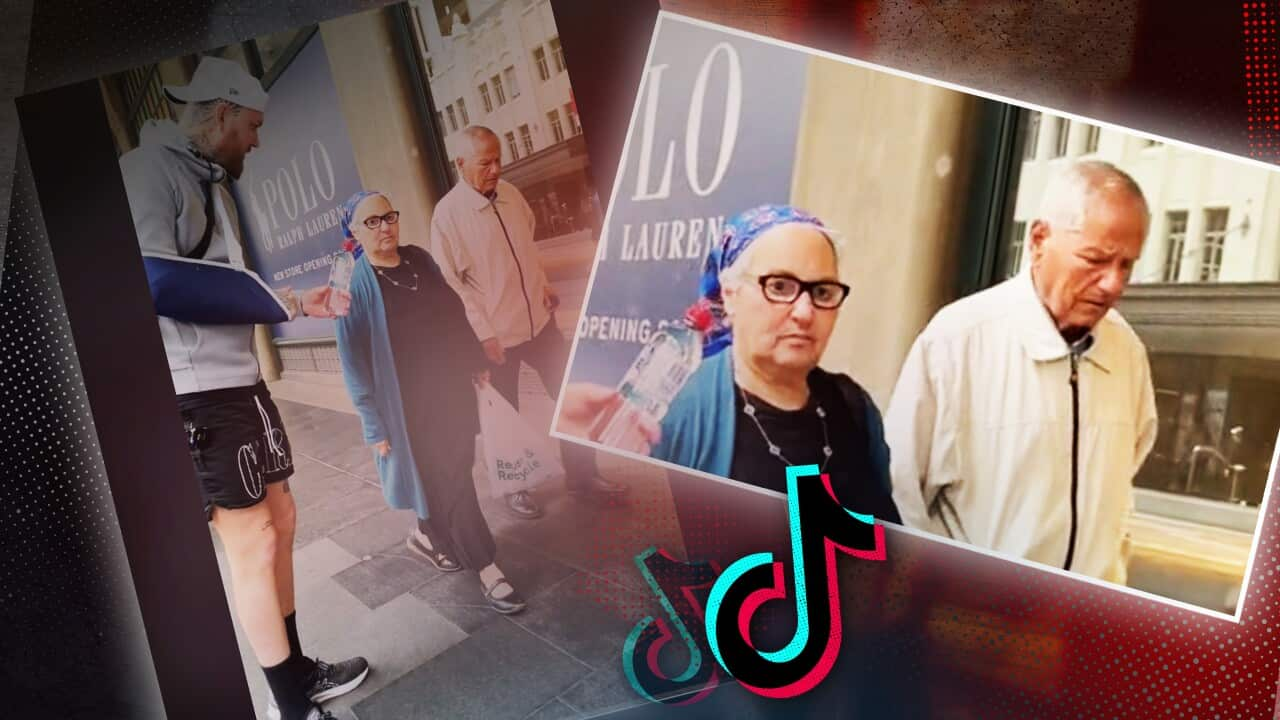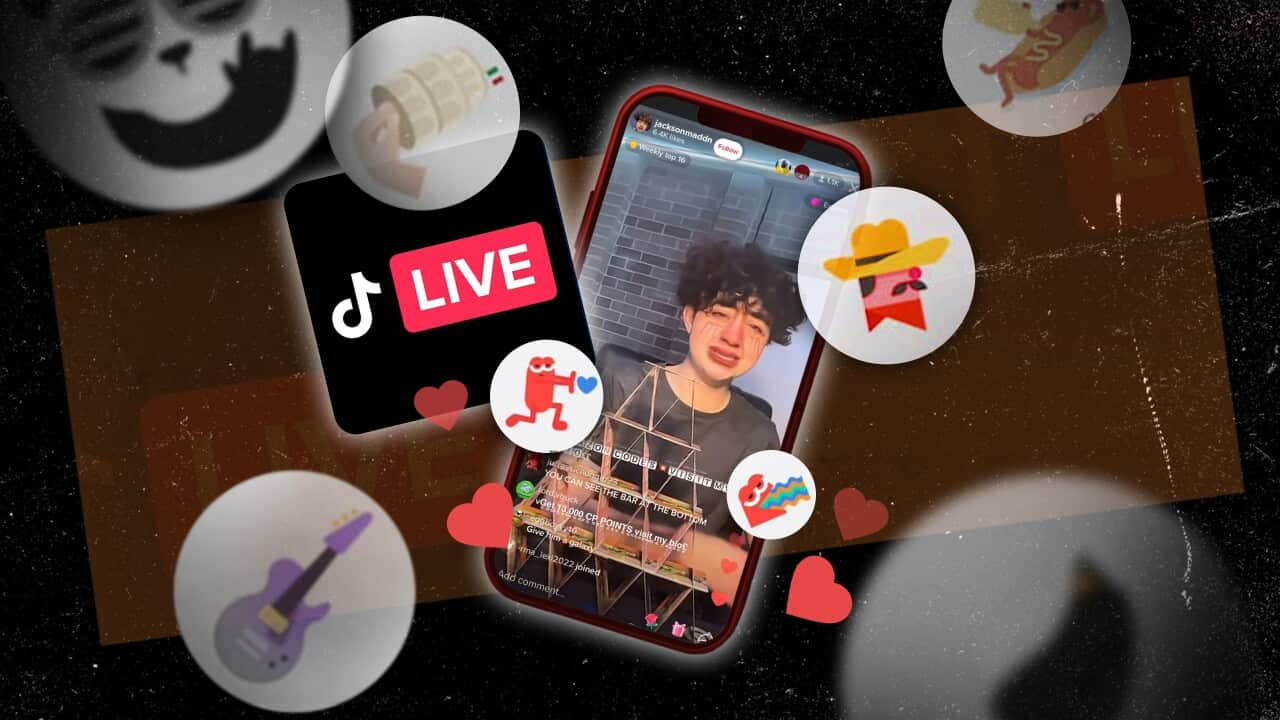Ten days ago, on a quiet Sunday evening, my brother sent me a text with a link to a video on social media. Underneath he wrote: “The comments about our parents”.
My heart stopped as I clicked. It showed a young man with his arm in a sling approaching my elderly parents in the Sydney CBD, my mother carrying a shopping bag and my father clutching a walking stick.
The man held a bottle of water out to them and asked if they would open it. My parents continued walking.
The man then turned to the camera with a look on his face as if to say, ‘look, how cruel’.
A caption appears: “Don’t be the person that doesn’t help”.
It then cuts to him asking another stranger to open his bottle, and she does.

Amal's parents in the video.
A member of the public is set up as the hero - or sometimes it’s the creator - and judging by the comments, my parents are the villains.
“Those first people just plain hateful!!!”
“I don’t understand why someone wouldn’t help.”
“If people can’t even help to open a bottle of water, then humanity is doing really bad…”
But my parents are not dismissive, and they are not hateful.
My parents are those migrant success stories you like to hear about. They arrived in Australia more than 50 years ago without fluency in English, local connections or more than a few dollars, and they have complex stories that cannot be distilled into five seconds.
A few years ago, I wrote a book, Fridays with My Folks, about how my father’s diagnosis of renal failure impacted our entire family. My mother, who is in her 70s, has been beside him through his dialysis treatments. When they were filmed, they were having a quiet day of respite.
My mother says what she saw was two men approaching them (the other one was filming), their intentions not clear. She didn’t notice the man’s arm was in a sling.
They were distressed by the video, and the comments it led to.

The moment after the interaction with Amal's parents.
My parents, minding their own business, should have a right to their privacy. Buskers need permission to sing in public spaces, but anyone with a mobile phone can ‘perform’ without permission and force a stranger into being part of their ‘content’ without consent.
I messaged the man behind the video: “Do you not see my father with a walking stick?”
It remained unread.
My brother had more luck. The video was removed from Instagram, where it had only a handful of comments, but the creator said while he would moderate the comments on TikTok, he wasn’t going to take it down: it was still “pushing”.
The kindness; it’s overwhelming.

Amal Awad and her father. Source: Supplied / Amal Awad
“I don’t think it’s right to shame ppl because they didn’t help. U don’t know what they are going through.”
“I’m sure you would feel comfortable with a stranger approaching you in the street too,” one said sarcastically.
But sadly it wasn’t enough.
True kindness is not made for public consumption. It does not need likes or commentary, and it should be genuine.
Given the creator of the video called it a “social experiment”, I’d wager his arm sling is a prop. He’s posing as someone with a disability to inspire pity.
True kindness is not made for public consumption. It does not need likes or commentary.- Amal Awad
“Social experiments” like this are dangerous. Vulnerable people are being used as someone else’s ticket to online popularity.
So what can we do about it?

Amal's parents. Source: Supplied / Amal Awad.
Next time you come across one of these videos, please remind yourself that you do not know the people featured in them. You can’t see their personal histories, their invisible issues and why they do or don’t do something.
Whatever you do, please don’t like, share, or subscribe to it.
Amal Awad is a Sydney-based writer and author.
Her parents consented to SBS News publishing the video to raise awareness.
SBS News pays freelance writers a standard rate. The fee for this article will be donated to charity at the writer’s request.
The creator of the video, Luke Erwin, told SBS News his goal is to “remind people to help people” but “I think what I did was a bit out of line and I need a re-think”.
“Before I posted that clip, I thought of those people, and I thought, ‘this isn’t good’ … Obviously the person that helped me gets all the praise but then the person that doesn’t help me, doesn't, so I need to really stop doing that,” he said.
Erwin said there was “no monetisation” on the video of Amal’s parents but he has other streams of income. He said he had changed his ways from previous “horrible” pranks and has “invested a lot of money into putting back into the community”. He did not address questions about whether his arm sling was a prop and if he sought permission to film people.
The video was still live at the time of publishing this article.
A City of Sydney spokesperson told SBS News a permit isn’t required for filming of this nature.
Would you like to share your story with SBS News? Email











